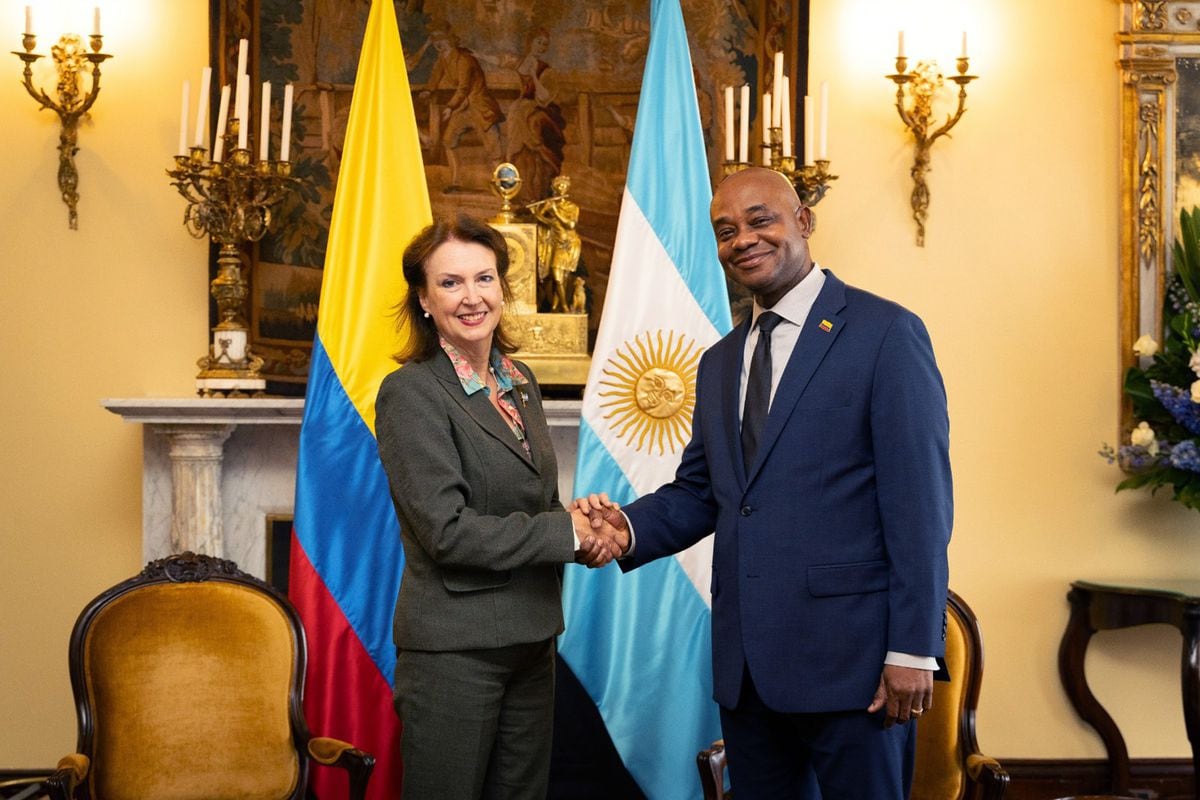Colombia and Argentina make peace, despite the undeniable animosity between presidents Gustavo Petro and Javier Milei. In an exhibition of pragmatism, their respective foreign ministers have settled this Friday in Bogotá the prolonged diplomatic crisis that had caused the exchange of disqualifications between two leaders at ideological opposites, and the repeated insults of the Argentine libertarian, who came to call him a “terrorist murderer.” ” to the Colombian leftist.
The chancellor in charge of Colombia, Luis Gilberto Murillo, and his Argentine counterpart, Diana Mondino, sealed the reconciliation at the San Carlos Palace, the headquarters of the Ministry of Foreign Affairs. Murillo described it as “a very productive meeting” in which they found areas of collaboration in different sectors, from security to economic development. The head of Colombian diplomacy stressed that "this is a new moment in the relationship that we want to maintain in very pragmatic terms and for the benefit of both countries, both peoples, and both nations." According to the joint statement, Murillo also referred to the decision of the Argentine Government to begin the process of joining the OECD, an initiative supported by Colombia.
“The voice of diplomacy has prevailed over insults, and to that fateful moment that should never have happened,” celebrated the Colombian ambassador in Buenos Aires, Camilo Romero, who was also present. "Today what this meeting does is honor the past, 201 years of relations between our two countries, and of course strengthen that link, that bond, and all this is done for the well-being of the people and the well-being of the citizens," He stressed in a video released by the Foreign Ministry, since the day was behind closed doors and without statements to the press.
Despite two centuries of bilateral relations, Argentina and Colombia have a fairly distant bond, not only due to their geographical position (one at each end of South America) but also due to their geopolitical positions. Among the differences, Argentina remembers that Colombia abstained from supporting it in the Malvinas War.
The two leaders, furthermore, represent antagonistic political projects on countless fronts. During the Argentine campaign, Petro said that Milei's victory would bring barbarism and openly supported his Peronist rival, Sergio Massa. Days before the second round, the first left-wing president of contemporary Colombia asked on social networks to vote for Massa. “Milei returns us to Pinochet and Videla,” he then remarked in reference to the military dictatorships of Augusto Pinochet in Chile (1974-1990) and Jorge Rafael Videla in Argentina (1976-1981). Previously, at the beginning of the campaign, Petro had even compared Milei to Adolf Hitler, after the ultra leader said that socialist politicians are “garbage, human excrement.”
Since coming to power, Milei, for his part, has not bitten his tongue to describe Petro with high-caliber words. “He is a murderous communist who is sinking Colombia,” she responded in January to Colombian journalist Ángela Patricia Janiot in a television interview. In February, she referred to Petro as “a lethal plague for Colombians themselves,” when asked by a journalist from the NTN24 channel. Faithful to his violent and provocative style, she reiterated those labels in March when calling her counterpart a “terrorist murderer” in another interview with Andrés Oppenheimer for CNN. Those words exhausted Bogotá's patience.
Newsletter
The analysis of current events and the best stories from Colombia, every week in your mailbox
RECEIVE THE
At the most critical moment, the Colombian Foreign Ministry announced last month the expulsion of a group of diplomats from the Argentine Embassy in Bogotá, but both Petro and Milei stopped the foreseeable chain of reprisals by announcing, in a joint statement from their chancelleries, a stage of reconciliation. Colombia then agreed to return Ambassador Romero, called for consultations since January, to Buenos Aires and accept the credentials of the Argentine representative in Bogotá proposed by Milei.
The diplomatic conflict with Colombia has been one of many generated by the far-right leader in the region. Since he assumed power in December, the Argentine Government has also had clashes with Venezuela, Mexico and Chile. On each occasion, the Argentine Foreign Ministry has worked silently to iron out differences. With this Friday's meeting in Bogotá, Buenos Aires considers the crisis closed.

